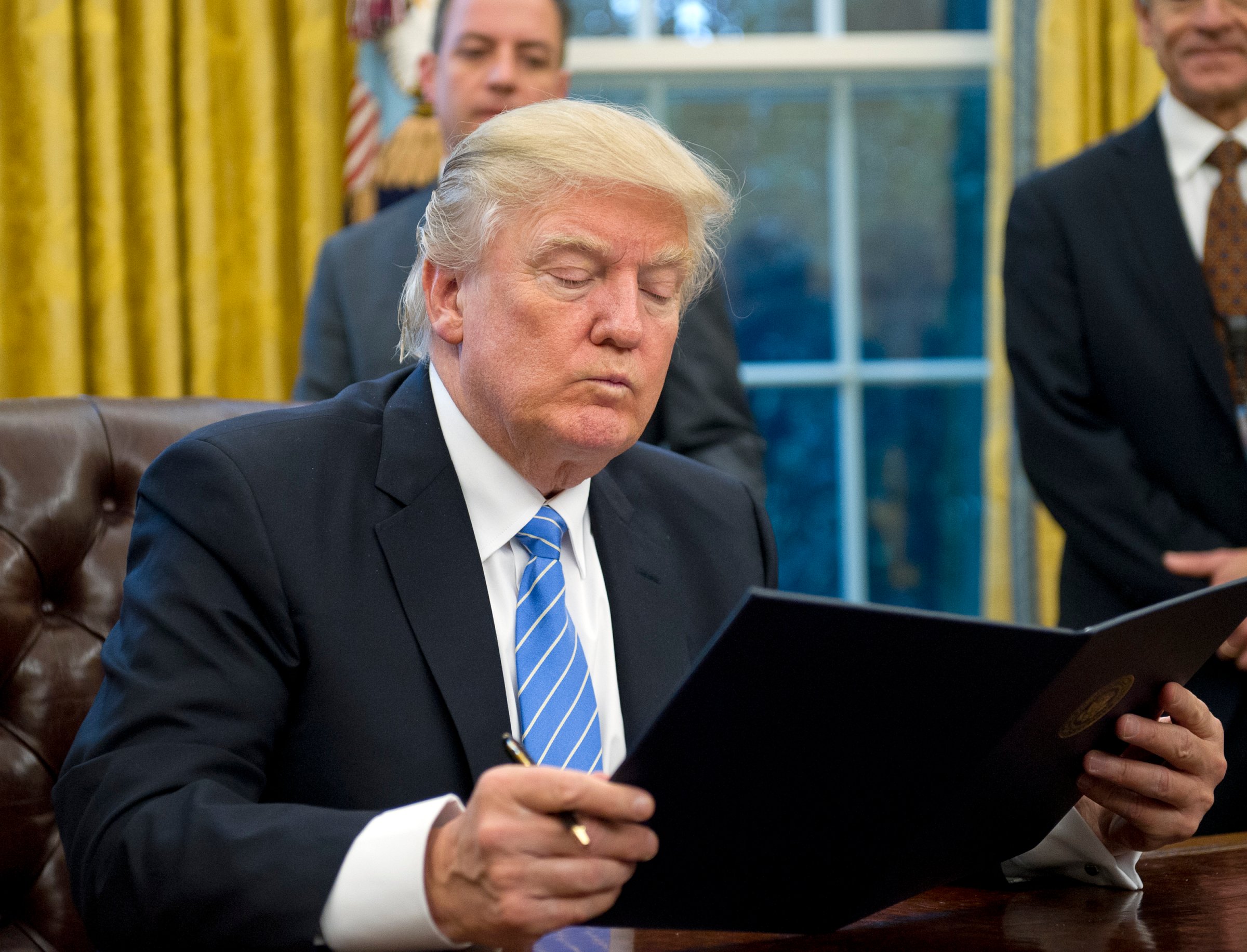
Paid family leave was one of the few policy areas where Donald Trump and Hillary Clinton agreed during the campaign, so there’s a good chance that Congress will consider paid family leave proposals under President Trump. Here are seven questions everyone should be asking.
How much — and what kind of — paid leave is provided?
Under the Family Medical Leave Act, covered employees receive 12 weeks of leave — but it’s unpaid. Trump’s proposal includes six weeks of paid leave for mothers. Under the FMLA, covered employees can take leave to care for a child or parent suffering from a “serious health condition,” or for his or her own recovery. Trump’s plan currently allows for leave for the birth of a child, but other types of leave are not covered.
Who pays?
There are two common models to fund a paid leave program.
One: a fund administered through the states. This is the funding mechanism used in California, New Jersey and Rhode Island, where employees pay a small percentage of payroll tax into a fund that then covers the leave. The D.C. Council recently passed a bill for a paid-leave program funded by a tax on employers, a rarity.
Two: direct government funding. Trump’s initiative would fund his paid leave program through existing state unemployment insurance benefit programs using taxpayer dollars. He claims that this will not result in increased taxpayer burden, because he will eliminate waste and fraud in the unemployment program.
Or sly option three: a tax credit. Though not technically a paid-leave program, Republicans — to the extent that the party has supported any paid leave — prefer to provide families assistance through offering companies with paid-leave plans a tax break. Trump has also voiced support for a tax-credit approach.
Who gets coverage?
This is a key question: If you won’t be eligible, the details of how much leave is provided and how it will be funded don’t matter. Trump’s initial paid leave proposal only covered married women recovering from birth — but his campaign later clarified that his plan would cover single women, as well. The plan still would not cover same-sex partners or adoptive parents seeking leave to be with a child. There are additional implications here: A plan that covers only women giving birth could provide a disincentive for employers to hire women, who could be seen as potentially more “expensive” than male candidates.
Does it matter which state you live in?
You may be entitled to better paid leave depending on the state in which you live. For instance, California allows for six weeks of paid leave for mothers and fathers to care for a new child. And New York State recently passed one of the most generous laws in the nation, providing mothers and fathers 12 weeks of paid leave.
Does it matter how much money you make?
In many instances, yes. Those states using a state-wide insurance pool to fund leave usually pay out leave as a percentage of salary — and cap it for high earners. Under California’s paid-leave plan, recipients earn up to 55 percent of their weekly wages (but no more than $1,129 per week). If the program is funded by a tax credit, those with a high taxable income will receive the most benefit. One criticism of this approach: It does little to address the needs of low-wage workers.
Who will administer the plan?
The U.S. Department of Labor administers the FMLA. The plan currently proposed by Trump would be administered through individual state unemployment insurance programs — it’s not clear if a federal agency would play a role. If left entirely up to the states, it could vary depending on which state’s unemployment insurance applies. This question is essential for small-business owners, most of whom are accustomed to paying unemployment insurance and may have some familiarity with how those programs work; a separate national program could mean a new set of regulations. Big businesses, on the other hand, might prefer a national program with uniform rules.
What if your employer doesn’t follow the law?
Under the FMLA, a person unlawfully denied leave can file a complaint with the Department of Labor or in federal court. An employer found in violation can be on the hook to pay lost wages and the attorney’s fees. An important aspect of any new plan will the strength of its enforcement mechanisms, and Trump as not suggested what, if any, would exist under his plan.
My last question: Will Congressional Republicans allow passage of a limited paid leave law — in exchange for weakening the protections currently available under the FMLA? If President Trump follows through on his promise to promote a paid leave law, these are the questions you should be asking of the people who end up writing it.
Tom Spiggle is author of the book “You’re Pregnant? You’re Fired: Protecting Mothers, Fathers, and Other Caregivers in the Workplace.” He is founder of the Spiggle Law Firm, which has offices in Arlington, Va., Nashville, Tenn., and Washington, D.C., where he focuses on workplace law helping to protect the rights of clients facing sexual harassment in the workplace and wrongful termination.
MOTTO hosts provocative voices and influencers from various spheres. We welcome outside contributions. Opinions expressed do not necessarily reflect the views of our editors.
More Must-Reads From TIME
- What Student Photojournalists Saw at the Campus Protests
- How Far Trump Would Go
- Why Maternity Care Is Underpaid
- Saving Seconds Is Better Than Hours
- Welcome to the Golden Age of Ryan Gosling
- Scientists Are Finding Out Just How Toxic Your Stuff Is
- The 100 Most Influential People of 2024
- Want Weekly Recs on What to Watch, Read, and More? Sign Up for Worth Your Time
Contact us at letters@time.com